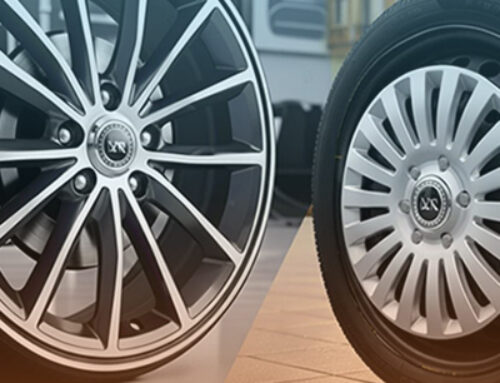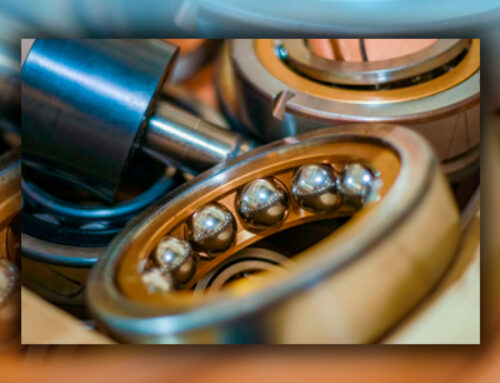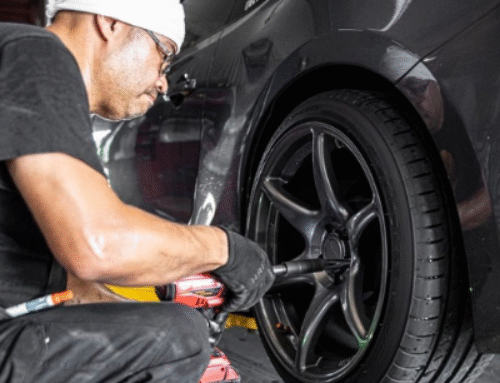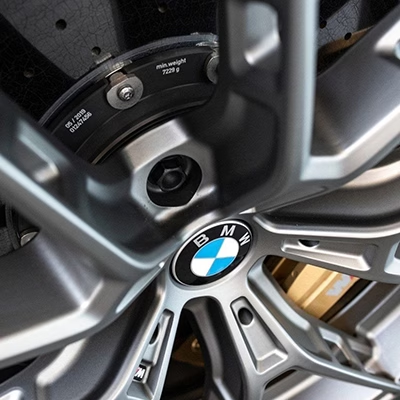
Can BMW Rims Be Repaired?
BMW vehicles are known for their exceptional performance, luxury, and precise engineering, and their rims are no exception. However, even the most well-made rims can suffer damage from potholes, curbs, or road debris. When this happens, BMW owners often find themselves wondering, “Can BMW rims be repaired?” The good news is that, in most cases, yes, they can be. In this article, we will explore whether BMW rims can be repaired, the types of damage that can be fixed, and how to go about the repair process.
Types of Damage to BMW Rims
BMW rims, like all alloy wheels, can experience a range of damages. Each type of damage requires different repair methods, and understanding the severity of the damage is key to determining whether the rim can be repaired. Below are the most common types of rim damage:
- Scratches and Curb Rash: This is perhaps the most common type of damage. It usually happens when a wheel scrapes against a curb or other object, leaving visible marks on the surface. While scratches may seem purely cosmetic, they can diminish the appearance of your rims.
- Bent Rims: Bent rims occur when a wheel hits a large pothole, road hazard, or curb with force. A bent rim can affect the wheel’s balance and performance, which could lead to vibration, uneven tire wear, or even loss of air pressure.
- Cracked Rims: Cracks in a rim are more severe than scratches or bends and can compromise the integrity of the wheel. A cracked rim can lead to air loss or, in extreme cases, cause a tire blowout. Cracked rims often require more intensive repair or, in some cases, replacement.
- Corrosion: Over time, exposure to water, salt, and other harsh chemicals can lead to corrosion on the surface of the rim. This is particularly common in regions with salty roads during the winter. Corrosion may cause the rim to lose its original shine and could affect its structural integrity if left untreated.
Can BMW Rims Be Repaired?
The short answer is yes, most BMW rims can be repaired, depending on the extent of the damage. For minor issues such as curb rash or small scratches, cosmetic repairs can usually restore the rim to its original appearance. In cases of bent rims, repair is also possible, but the extent of the damage may influence whether it’s a better option than replacing the rim.
For cracked rims, repair becomes more complex. If the crack is small and the rim is otherwise in good condition, it may be possible to weld or fill the crack. However, large or deep cracks, or cracks that compromise the wheel’s structural integrity, will require the rim to be replaced. It’s important to consult with a professional to ensure safety.
How Are BMW Rims Repaired?
Rim repair methods can vary depending on the type and severity of the damage. Here’s a breakdown of common repair techniques:
- Polishing and Refinishing: For scratches, curb rash, and minor cosmetic damage, the rim can be polished and refinished. This process involves sanding down the damaged area and applying a new coat of paint or clear coat. The rim is then rebalanced to ensure it’s functioning properly.
- Wheel Straightening: For bent rims, a process called wheel straightening is often used. This involves using specialized equipment to gradually straighten the rim back to its original shape. This is effective for minor bends, but if the rim has been severely damaged, replacement may be necessary.
- Welding and Filling: For cracked rims, welding can be used to seal small cracks. A professional welder will apply heat to the cracked area, which can restore the rim’s strength. However, this is typically only viable for minor cracks. Larger cracks may require a new rim to ensure safety.
- Corrosion Treatment: If your BMW rim is suffering from corrosion, the repair process usually involves removing the rust, sanding the affected areas, and then refinishing the wheel. In some cases, a protective coating is applied to prevent future corrosion.
When Should BMW Rims Be Replaced?
While many types of damage can be repaired, there are instances when replacement is the safer and more practical option. Here are some factors to consider:
- Severe Cracks: If a rim has deep or extensive cracks, it may not be safe to repair. The integrity of the rim could be compromised, and driving on a cracked rim can pose a significant safety risk.
- Extensive Damage: If a rim has suffered multiple types of damage (such as cracks and bends), repair may not be possible or could be more expensive than purchasing a new rim.
- Structural Issues: If the rim’s structure is compromised, repair may not restore its original strength. In this case, replacing the rim is the best option to ensure the safety and performance of your BMW.
Frequently Asked Questions (FAQs)
1. Can bent BMW rims be repaired? Yes, most bent BMW rims can be repaired through a process called wheel straightening. This technique is effective for minor bends. However, if the rim has been severely bent, it may need to be replaced.
2. How much does it cost to repair BMW rims? The cost of repairing BMW rims varies depending on the damage.
3. Can cracked BMW rims be repaired? Small cracks in BMW rims can be repaired through welding, but large or deep cracks typically require the rim to be replaced. It’s important to consult a professional to determine whether repair is possible.
4. Is it safe to drive on a damaged BMW rim? It depends on the extent of the damage. Minor scratches or small bends may not affect the performance of the rim. However, cracked or severely bent rims can lead to tire pressure issues or even tire blowouts, making it unsafe to drive. Always get your rims inspected if you notice any damage.
5. How long does a rim repair take? Rim repair can take anywhere from a few hours to a couple of days, depending on the type of repair needed. Cosmetic repairs typically take less time, while structural repairs like welding or straightening can take longer.
So, can BMW rims be repaired? In most cases, yes. From fixing scratches and curb rash to straightening bent rims, many common types of rim damage can be repaired. However, for more severe issues like cracks or extensive corrosion, replacement might be necessary. Always consult a professional to assess the damage and determine the best course of action to ensure your BMW rims are in top condition, keeping both safety and performance in mind.
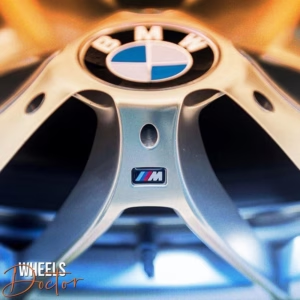
Do All BMW Wheels Fit Each Other? and BMW Wheels FAQ: Everything You Need to Know for all the details you need.
Click through and dive in for more insights!
At Wheels Doctor, we specialize in luxury wheel repair and restoration. Contact us today at (305) 490-2028 or (305) 964-7909 or message us through our social media channels: Instagram @wheelsdoctor and Facebook @wheelsdoctor. Your wheels deserve the best care—reach out and let’s bring them back to life!

